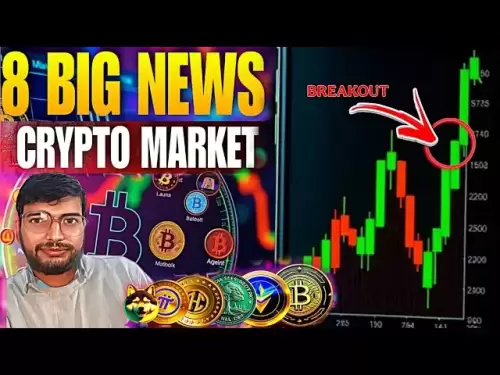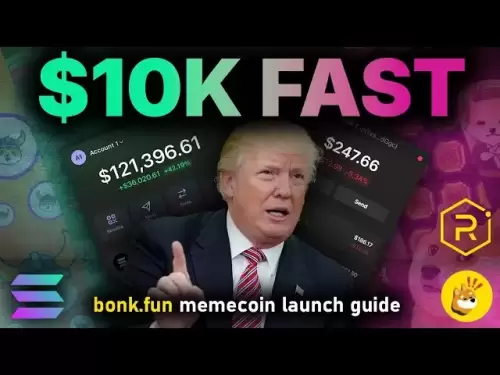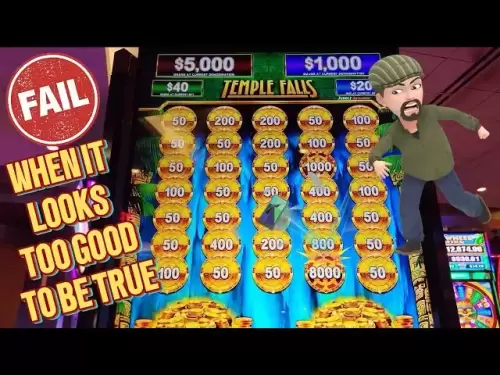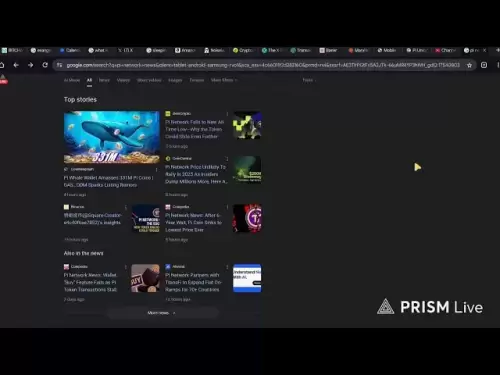-
 Bitcoin
Bitcoin $115200
-2.68% -
 Ethereum
Ethereum $3601
-5.16% -
 XRP
XRP $3.035
-2.96% -
 Tether USDt
Tether USDt $0.9997
-0.04% -
 BNB
BNB $764.5
-5.43% -
 Solana
Solana $168.1
-5.92% -
 USDC
USDC $0.9998
-0.02% -
 Dogecoin
Dogecoin $0.2090
-4.80% -
 TRON
TRON $0.3272
-0.49% -
 Cardano
Cardano $0.7306
-5.00% -
 Hyperliquid
Hyperliquid $39.16
-12.22% -
 Stellar
Stellar $0.3967
-4.96% -
 Sui
Sui $3.566
-5.95% -
 Chainlink
Chainlink $16.55
-6.57% -
 Bitcoin Cash
Bitcoin Cash $552.3
-3.90% -
 Hedera
Hedera $0.2516
-4.69% -
 Avalanche
Avalanche $21.99
-5.75% -
 Toncoin
Toncoin $3.621
-0.28% -
 Ethena USDe
Ethena USDe $1.000
-0.03% -
 UNUS SED LEO
UNUS SED LEO $8.951
0.02% -
 Litecoin
Litecoin $105.9
-3.59% -
 Shiba Inu
Shiba Inu $0.00001232
-5.00% -
 Polkadot
Polkadot $3.640
-5.55% -
 Uniswap
Uniswap $9.048
-7.03% -
 Monero
Monero $301.8
-1.51% -
 Dai
Dai $0.9999
-0.01% -
 Bitget Token
Bitget Token $4.334
-3.66% -
 Pepe
Pepe $0.00001064
-6.17% -
 Cronos
Cronos $0.1367
-5.78% -
 Aave
Aave $259.2
-4.59%
What are DeFi/NFT/GameFi in blockchain? Detailed explanation of the concepts and investment strategies of the three
DeFi, NFT, and GameFi represent interconnected aspects of blockchain, offering diverse investment opportunities from lending to digital art and gaming.
Jun 06, 2025 at 07:00 pm
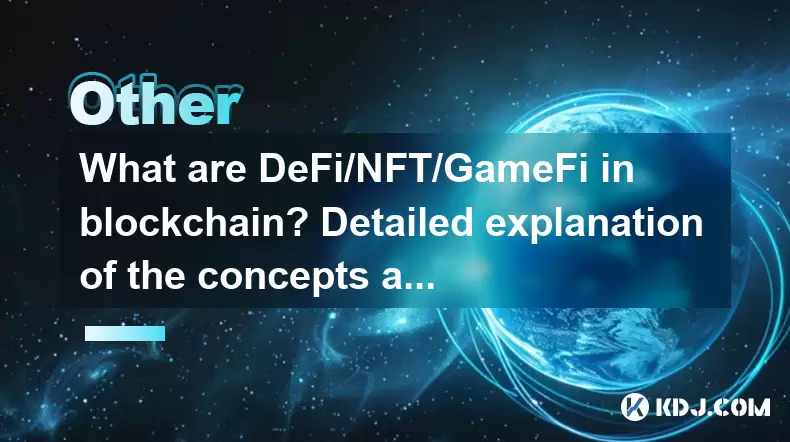
In the world of blockchain and cryptocurrency, the terms DeFi, NFT, and GameFi have gained significant attention. These concepts represent different but interconnected aspects of the decentralized ecosystem. This article will delve into a detailed explanation of each, along with investment strategies to help you navigate these spaces effectively.
What is DeFi?
DeFi, short for Decentralized Finance, refers to a financial system built on blockchain technology that operates without the need for traditional financial intermediaries like banks or brokers. The core idea behind DeFi is to create an open, permissionless, and transparent financial infrastructure accessible to anyone with an internet connection.
DeFi applications include lending and borrowing platforms, decentralized exchanges (DEXs), yield farming, and liquidity pools. These platforms allow users to engage in financial activities directly with one another, often through smart contracts that execute automatically based on predefined rules.
To invest in DeFi, consider the following strategies:
- Research: Start by understanding the different DeFi protocols and their functionalities. Platforms like Aave, Compound, and Uniswap are popular examples.
- Diversification: Spread your investments across multiple DeFi projects to mitigate risk. This can include different types of DeFi applications, such as lending, borrowing, and DEXs.
- Staking and Yield Farming: Participate in staking or yield farming to earn passive income. However, be aware of the risks, as high yields often come with high volatility.
- Security: Always use secure wallets and be cautious of phishing attempts. Ensure you understand the smart contract risks associated with DeFi platforms.
What is NFT?
NFTs, or Non-Fungible Tokens, are unique digital assets that represent ownership of a specific item or piece of content, often stored on the blockchain. Unlike cryptocurrencies such as Bitcoin or Ethereum, which are fungible and can be exchanged on a one-to-one basis, NFTs are indivisible and unique, making them suitable for representing digital art, collectibles, music, and more.
NFTs have revolutionized the concept of digital ownership, allowing creators to monetize their work directly and buyers to own verifiable, scarce digital assets. Popular platforms for buying and selling NFTs include OpenSea, Rarible, and NBA Top Shot.
Investment strategies for NFTs include:
- Due Diligence: Research the artist, the project, and the platform before investing. Look into the community and the potential for future value.
- Diversification: Invest in a variety of NFTs across different categories, such as art, music, and gaming, to spread risk.
- Long-term Holding: Consider holding onto NFTs that you believe have long-term value, rather than trying to flip them quickly for profit.
- Participation in Communities: Engage with NFT communities to stay informed about trends and opportunities. Platforms like Discord and Twitter are popular for NFT discussions.
What is GameFi?
GameFi, a portmanteau of Gaming and Finance, refers to the integration of blockchain technology and decentralized finance within video games. GameFi allows players to earn cryptocurrency and NFTs by participating in gameplay, effectively turning gaming into a form of work or investment.
Popular GameFi projects include Axie Infinity, where players breed, battle, and trade digital creatures called Axies, and Decentraland, a virtual world where players can buy, sell, and develop land parcels.
Investment strategies for GameFi include:
- Understanding Gameplay: Before investing, play the game to understand its mechanics and earning potential. Not all games are equal in terms of profitability.
- Asset Evaluation: Evaluate the value of in-game assets, such as NFTs. Consider the rarity, utility, and demand for these assets.
- Scholarships and Guilds: Consider joining or forming a GameFi guild or participating in scholarship programs, where experienced players can help newcomers earn rewards.
- Risk Management: Be aware of the volatility of GameFi assets and the potential for scams. Always do thorough research before investing significant amounts.
How DeFi, NFT, and GameFi Interact
While DeFi, NFT, and GameFi are distinct categories, they often intersect and enhance each other. For example, DeFi protocols can be used to finance the purchase of NFTs, and GameFi projects often rely on both DeFi and NFTs to create their ecosystems.
In GameFi, players might use DeFi platforms to borrow funds to purchase in-game assets, which are often NFTs. These NFTs can then be used within the game to generate further earnings, which can be reinvested into DeFi for additional returns. This interconnectedness creates a dynamic and potentially lucrative environment for investors.
Investment Strategies Across DeFi, NFT, and GameFi
To maximize your investment potential across these three areas, consider the following comprehensive strategies:
- Portfolio Allocation: Allocate your investment portfolio across DeFi, NFTs, and GameFi based on your risk tolerance and investment goals. A balanced approach can help mitigate risk while capitalizing on opportunities in each sector.
- Continuous Learning: Stay updated with the latest developments in the blockchain space. Subscribe to newsletters, join online communities, and follow thought leaders to stay informed.
- Risk Assessment: Assess the risks associated with each investment. DeFi projects can be vulnerable to smart contract hacks, NFTs can be subject to market bubbles, and GameFi can be affected by changes in game mechanics or player interest.
- Liquidity Management: Ensure you have sufficient liquidity to take advantage of new opportunities or to exit positions if necessary. This is particularly important in the volatile crypto market.
FAQs
Q: Can I invest in DeFi, NFT, and GameFi with a small amount of money?
A: Yes, it is possible to start investing in these areas with a small amount of money. Many DeFi platforms allow you to start with small deposits, and some NFT marketplaces offer lower-priced items. GameFi often requires an initial investment in game assets, but some projects offer scholarships or rental options for newcomers.
Q: How do I ensure the security of my investments in DeFi, NFT, and GameFi?
A: Security is paramount in the crypto space. Use reputable wallets and platforms, enable two-factor authentication, and never share your private keys. For DeFi, thoroughly review the smart contracts and audit reports of the projects you invest in. For NFTs, ensure you are using trusted marketplaces and be wary of counterfeit items. In GameFi, be cautious of scams and always verify the legitimacy of the games and their developers.
Q: Are there any regulatory concerns I should be aware of when investing in DeFi, NFT, and GameFi?
A: Yes, regulatory concerns are a significant factor in the blockchain space. Different countries have varying regulations regarding cryptocurrencies and blockchain projects. It's essential to stay informed about the legal environment in your jurisdiction and understand how it might impact your investments. Always comply with local laws and regulations to avoid potential legal issues.
Q: How can I stay updated on the latest trends and opportunities in DeFi, NFT, and GameFi?
A: To stay updated, follow reputable crypto news sources, subscribe to newsletters from leading platforms, and join online communities such as Discord servers and Reddit forums dedicated to these topics. Following influential figures and projects on social media platforms like Twitter can also provide real-time updates and insights into the latest trends and opportunities.
Disclaimer:info@kdj.com
The information provided is not trading advice. kdj.com does not assume any responsibility for any investments made based on the information provided in this article. Cryptocurrencies are highly volatile and it is highly recommended that you invest with caution after thorough research!
If you believe that the content used on this website infringes your copyright, please contact us immediately (info@kdj.com) and we will delete it promptly.
- Cardano Price, Pi Network, and Crypto Presales: What's the Buzz?
- 2025-08-02 08:50:12
- XRP Fund Success: Teucrium CEO Reveals Trillions on the Horizon
- 2025-08-02 09:10:12
- Challenge Coins: More Than Just Collectibles – A Military Tradition
- 2025-08-02 08:30:12
- Under the Radar: Hunting for 100x Crypto Gems in a Pi Network World
- 2025-08-02 08:30:12
- Bitcoin, Solana, and Altcoin Season: What's Hot and What's Not?
- 2025-08-02 07:10:12
- Toncoin, Rollblock, and the Token Offering Landscape: A New York Minute
- 2025-08-02 07:10:12
Related knowledge
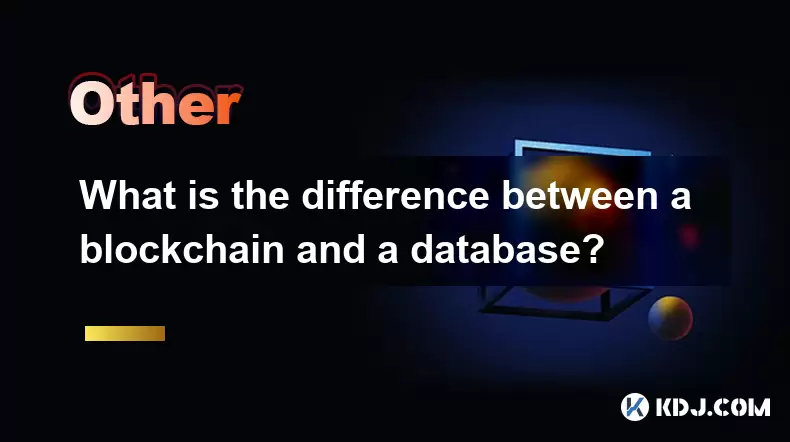
What is the difference between a blockchain and a database?
Aug 01,2025 at 09:36pm
Understanding the Core Structure of a BlockchainA blockchain is a decentralized digital ledger that records data in a series of immutable blocks linke...
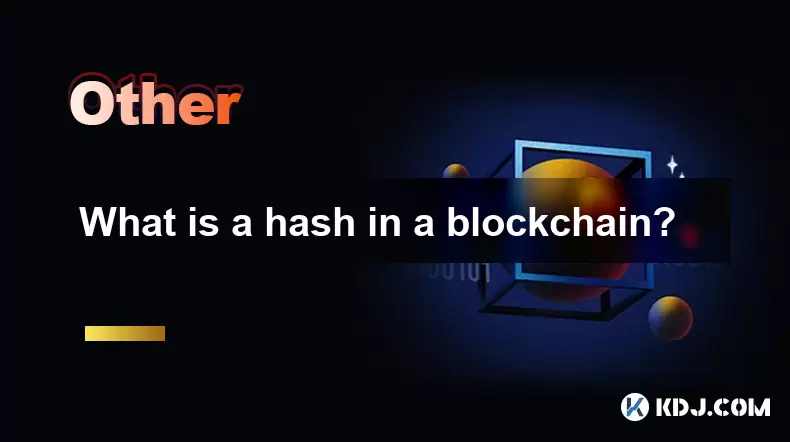
What is a hash in a blockchain?
Aug 02,2025 at 05:28am
Understanding the Concept of Hash in BlockchainA hash in the context of blockchain technology refers to a unique digital fingerprint generated by a cr...
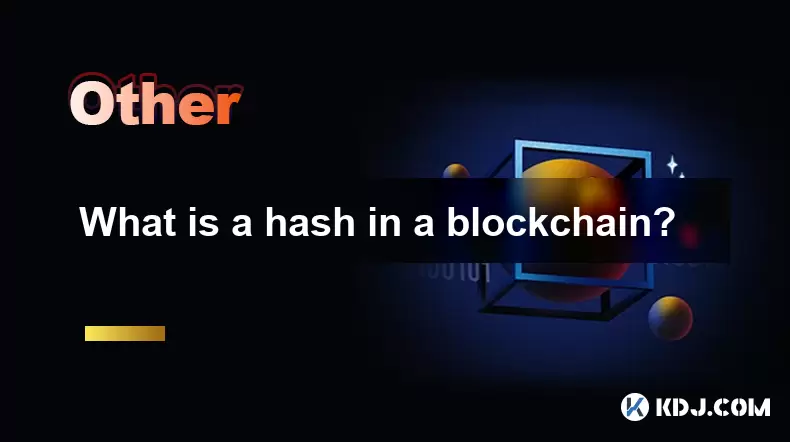
What is a hash in a blockchain?
Aug 02,2025 at 04:43am
Understanding the Concept of Hash in BlockchainA hash in the context of blockchain technology refers to a unique digital fingerprint generated by a cr...
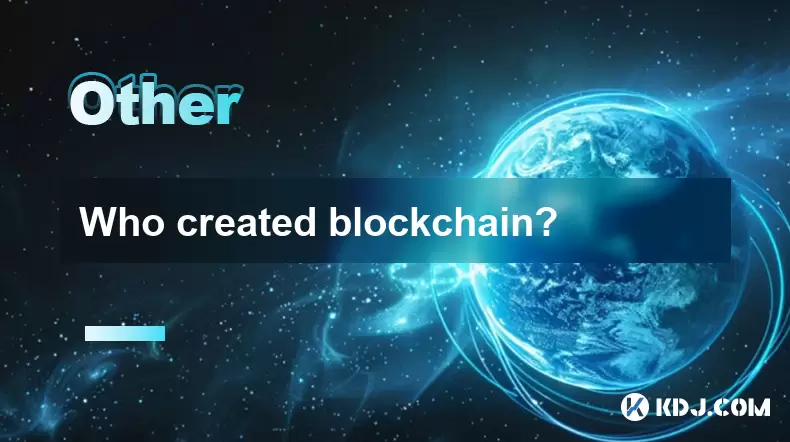
Who created blockchain?
Aug 02,2025 at 05:15am
What Is Blockchain and Why Does Its Origin Matter?Understanding who created blockchain begins with recognizing what blockchain actually is. Blockchain...
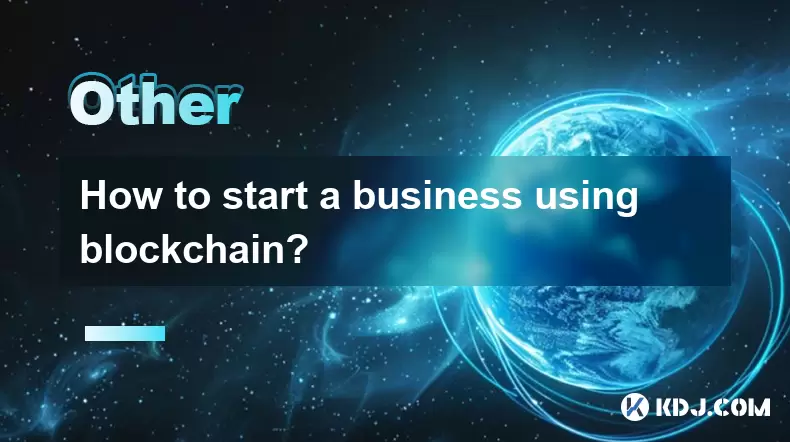
How to start a business using blockchain?
Jul 28,2025 at 12:36am
Understanding the Basics of Blockchain TechnologyBefore diving into the process of starting a business using blockchain, it's crucial to understand wh...
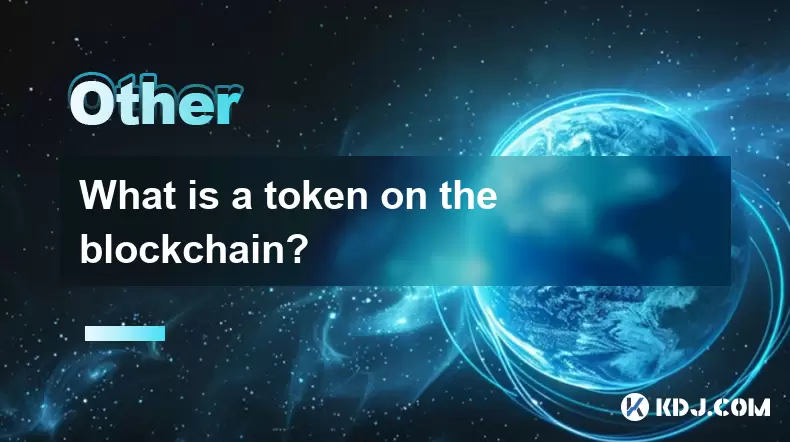
What is a token on the blockchain?
Jul 21,2025 at 07:00am
Understanding the Concept of a TokenIn the realm of blockchain technology, a token is a digital representation of an asset or utility that exists on a...

What is the difference between a blockchain and a database?
Aug 01,2025 at 09:36pm
Understanding the Core Structure of a BlockchainA blockchain is a decentralized digital ledger that records data in a series of immutable blocks linke...

What is a hash in a blockchain?
Aug 02,2025 at 05:28am
Understanding the Concept of Hash in BlockchainA hash in the context of blockchain technology refers to a unique digital fingerprint generated by a cr...

What is a hash in a blockchain?
Aug 02,2025 at 04:43am
Understanding the Concept of Hash in BlockchainA hash in the context of blockchain technology refers to a unique digital fingerprint generated by a cr...

Who created blockchain?
Aug 02,2025 at 05:15am
What Is Blockchain and Why Does Its Origin Matter?Understanding who created blockchain begins with recognizing what blockchain actually is. Blockchain...

How to start a business using blockchain?
Jul 28,2025 at 12:36am
Understanding the Basics of Blockchain TechnologyBefore diving into the process of starting a business using blockchain, it's crucial to understand wh...

What is a token on the blockchain?
Jul 21,2025 at 07:00am
Understanding the Concept of a TokenIn the realm of blockchain technology, a token is a digital representation of an asset or utility that exists on a...
See all articles





















